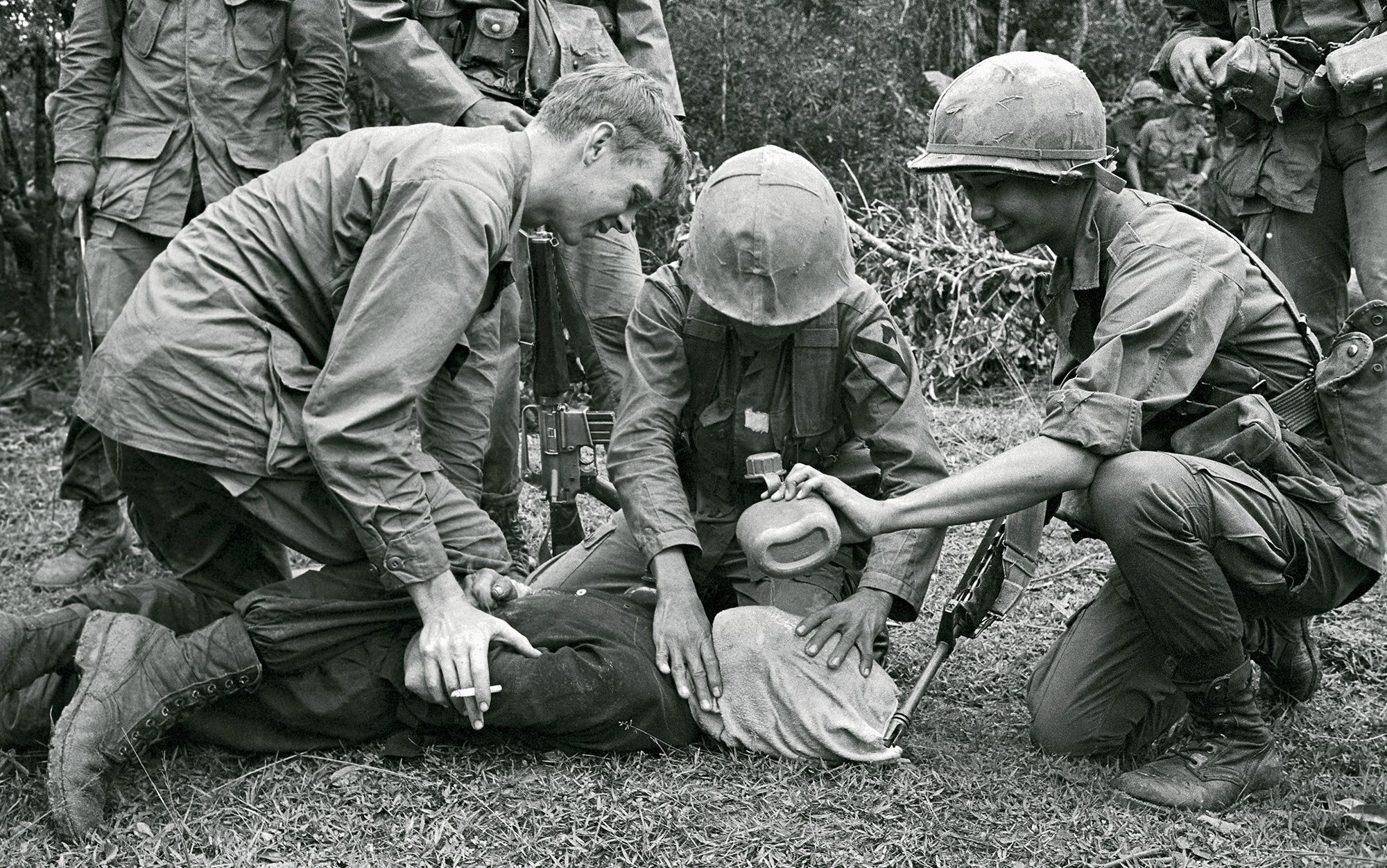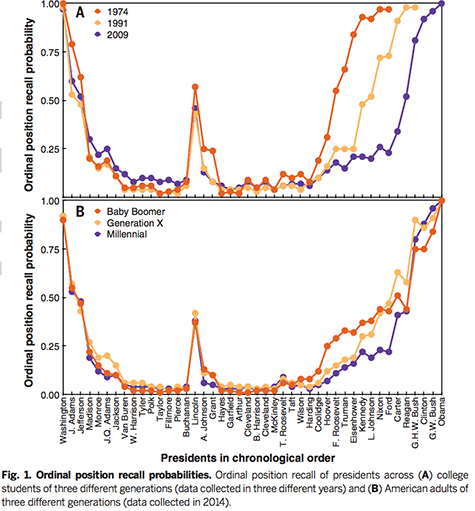A 29-year-old stewardess fell ... to her
death tonight when she was swept
through an emergency door that sud-
denly sprang open ... The body ...
was found ... three hours after the
accident.
—New York Times
The states when they black out and lie there rolling when they turn
To something transcontinental move by drawing moonlight out of the great
One-sided stone hung off the starboard wingtip some sleeper next to
An engine is groaning for coffee and there is faintly coming in
Somewhere the vast beast-whistle of space. In the galley with its racks
Of trays she rummages for a blanket and moves in her slim tailored
Uniform to pin it over the cry at the top of the door. As though she blew
The door down with a silent blast from her lungs frozen she is black
Out finding herself with the plane nowhere and her body taken by the throat
The undying cry of the void falling living beginning to be something
That no one has ever been and lived through screaming without enough air
Still neat lipsticked stockinged girdled by regulation her hat
Still on her arms and legs in no world and yet spaced also strangely
With utter placid rightness on thin air taking her time she holds it
In many places and now, still thousands of feet from her death she seems
To slow she develops interest she turns in her maneuverable body
To watch it. She is hung high up in the overwhelming middle of things in her
Self in low body-whistling wrapped intensely in all her dark dance-weight
Coming down from a marvellous leap with the delaying, dumfounding ease
Of a dream of being drawn like endless moonlight to the harvest soil
Of a central state of one’s country with a great gradual warmth coming
Over her floating finding more and more breath in what she has been using
For breath as the levels become more human seeing clouds placed honestly
Below her left and right riding slowly toward them she clasps it all
To her and can hang her hands and feet in it in peculiar ways and
Her eyes opened wide by wind, can open her mouth as wide wider and suck
All the heat from the cornfields can go down on her back with a feeling
Of stupendous pillows stacked under her and can turn turn as to someone
In bed smile, understood in darkness can go away slant slide
Off tumbling into the emblem of a bird with its wings half-spread
Or whirl madly on herself in endless gymnastics in the growing warmth
Of wheatfields rising toward the harvest moon. There is time to live
In superhuman health seeing mortal unreachable lights far down seeing
An ultimate highway with one late priceless car probing it arriving
In a square town and off her starboard arm the glitter of water catches
The moon by its one shaken side scaled, roaming silver My God it is good
And evil lying in one after another of all the positions for love
Making dancing sleeping and now cloud wisps at her no
Raincoat no matter all small towns brokenly brighter from inside
Cloud she walks over them like rain bursts out to behold a Greyhound
Bus shooting light through its sides it is the signal to go straight
Down like a glorious diver then feet first her skirt stripped beautifully
Up her face in fear-scented cloths her legs deliriously bare then
Arms out she slow-rolls over steadies out waits for something great
To take control of her trembles near feathers planes head-down
The quick movements of bird-necks turning her head gold eyes the insight-
eyesight of owls blazing into the hencoops a taste for chicken overwhelming
Her the long-range vision of hawks enlarging all human lights of cars
Freight trains looped bridges enlarging the moon racing slowly
Through all the curves of a river all the darks of the midwest blazing
From above. A rabbit in a bush turns white the smothering chickens
Huddle for over them there is still time for something to live
With the streaming half-idea of a long stoop a hurtling a fall
That is controlled that plummets as it wills turns gravity
Into a new condition, showing its other side like a moon shining
New Powers there is still time to live on a breath made of nothing
But the whole night time for her to remember to arrange her skirt
Like a diagram of a bat tightly it guides her she has this flying-skin
Made of garments and there are also those sky-divers on tv sailing
In sunlight smiling under their goggles swapping batons back and forth
And He who jumped without a chute and was handed one by a diving
Buddy. She looks for her grinning companion white teeth nowhere
She is screaming singing hymns her thin human wings spread out
From her neat shoulders the air beast-crooning to her warbling
And she can no longer behold the huge partial form of the world now
She is watching her country lose its evoked master shape watching it lose
And gain get back its houses and peoples watching it bring up
Its local lights single homes lamps on barn roofs if she fell
Into water she might live like a diver cleaving perfect plunge
Into another heavy silver unbreathable slowing saving
Element: there is water there is time to perfect all the fine
Points of diving feet together toes pointed hands shaped right
To insert her into water like a needle to come out healthily dripping
And be handed a Coca-Cola there they are there are the waters
Of life the moon packed and coiled in a reservoir so let me begin
To plane across the night air of Kansas opening my eyes superhumanly
Bright to the damned moon opening the natural wings of my jacket
By Don Loper moving like a hunting owl toward the glitter of water
One cannot just fall just tumble screaming all that time one must use
It she is now through with all through all clouds damp hair
Straightened the last wisp of fog pulled apart on her face like wool revealing
New darks new progressions of headlights along dirt roads from chaos
And night a gradual warming a new-made, inevitable world of one’s own
Country a great stone of light in its waiting waters hold hold out
For water: who knows when what correct young woman must take up her body
And fly and head for the moon-crazed inner eye of midwest imprisoned
Water stored up for her for years the arms of her jacket slipping
Air up her sleeves to go all over her? What final things can be said
Of one who starts her sheerly in her body in the high middle of night
Air to track down water like a rabbit where it lies like life itself
Off to the right in Kansas? She goes toward the blazing-bare lake
Her skirts neat her hands and face warmed more and more by the air
Rising from pastures of beans and under her under chenille bedspreads
The farm girls are feeling the goddess in them struggle and rise brooding
On the scratch-shining posts of the bed dreaming of female signs
Of the moon male blood like iron of what is really said by the moan
Of airliners passing over them at dead of midwest midnight passing
Over brush fires burning out in silence on little hills and will wake
To see the woman they should be struggling on the rooftree to become
Stars: for her the ground is closer water is nearer she passes
It then banks turns her sleeves fluttering differently as she rolls
Out to face the east, where the sun shall come up from wheatfields she must
Do something with water fly to it fall in it drink it rise
From it but there is none left upon earth the clouds have drunk it back
The plants have sucked it down there are standing toward her only
The common fields of death she comes back from flying to falling
Returns to a powerful cry the silent scream with which she blew down
The coupled door of the airliner nearly nearly losing hold
Of what she has done remembers remembers the shape at the heart
Of cloud fashionably swirling remembers she still has time to die
Beyond explanation. Let her now take off her hat in summer air the contour
Of cornfields and have enough time to kick off her one remaining
Shoe with the toes of the other foot to unhook her stockings
With calm fingers, noting how fatally easy it is to undress in midair
Near death when the body will assume without effort any position
Except the one that will sustain it enable it to rise live
Not die nine farms hover close widen eight of them separate, leaving
One in the middle then the fields of that farm do the same there is no
Way to back off from her chosen ground but she sheds the jacket
With its silver sad impotent wings sheds the bat’s guiding tailpiece
Of her skirt the lightning-charged clinging of her blouse the intimate
Inner flying-garment of her slip in which she rides like the holy ghost
Of a virgin sheds the long windsocks of her stockings absurd
Brassiere then feels the girdle required by regulations squirming
Off her: no longer monobuttocked she feels the girdle flutter shake
In her hand and float upward her clothes rising off her ascending
Into cloud and fights away from her head the last sharp dangerous shoe
Like a dumb bird and now will drop in soon now will drop
In like this the greatest thing that ever came to Kansas down from all
Heights all levels of American breath layered in the lungs from the frail
Chill of space to the loam where extinction slumbers in corn tassels thickly
And breathes like rich farmers counting: will come along them after
Her last superhuman act the last slow careful passing of her hands
All over her unharmed body desired by every sleeper in his dream:
Boys finding for the first time their loins filled with heart’s blood
Widowed farmers whose hands float under light covers to find themselves
Arisen at sunrise the splendid position of blood unearthly drawn
Toward clouds all feel something pass over them as she passes
Her palms over her long legs her small breasts and deeply between
Her thighs her hair shot loose from all pins streaming in the wind
Of her body let her come openly trying at the last second to land
On her back This is it this
All those who find her impressed
In the soft loam gone down driven well into the image of her body
The furrows for miles flowing in upon her where she lies very deep
In her mortal outline in the earth as it is in cloud can tell nothing
But that she is there inexplicable unquestionable and remember
That something broke in them as well and began to live and die more
When they walked for no reason into their fields to where the whole earth
Caught her interrupted her maiden flight told her how to lie she cannot
Turn go away cannot move cannot slide off it and assume another
Position no sky-diver with any grin could save her hold her in his arms
Plummet with her unfold above her his wedding silks she can no longer
Mark the rain with whirling women that take the place of a dead wife
Or the goddess in Norwegian farm girls or all the back-breaking whores
Of Wichita. All the known air above her is not giving up quite one
Breath it is all gone and yet not dead not anywhere else
Quite lying still in the field on her back sensing the smells
Of incessant growth try to lift her a little sight left in the corner
Of one eye fading seeing something wave lies believing
That she could have made it at the best part of her brief goddess
State to water gone in headfirst come out smiling invulnerable
Girl in a bathing-suit ad but she is lying like a sunbather at the last
Of moonlight half-buried in her impact on the earth not far
From a railroad trestle a water tank she could see if she could
Raise her head from her modest hole with her clothes beginning
To come down all over Kansas into bushes on the dewy sixth green
Of a golf course one shoe her girdle coming down fantastically
On a clothesline, where it belongs her blouse on a lightning rod:
Lies in the fields in this field on her broken back as though on
A cloud she cannot drop through while farmers sleepwalk without
Their women from houses a walk like falling toward the far waters
Of life in moonlight toward the dreamed eternal meaning of their farms
Toward the flowering of the harvest in their hands that tragic cost
Feels herself go go toward go outward breathes at last fully
Not and tries less once tries tries ah, god—







